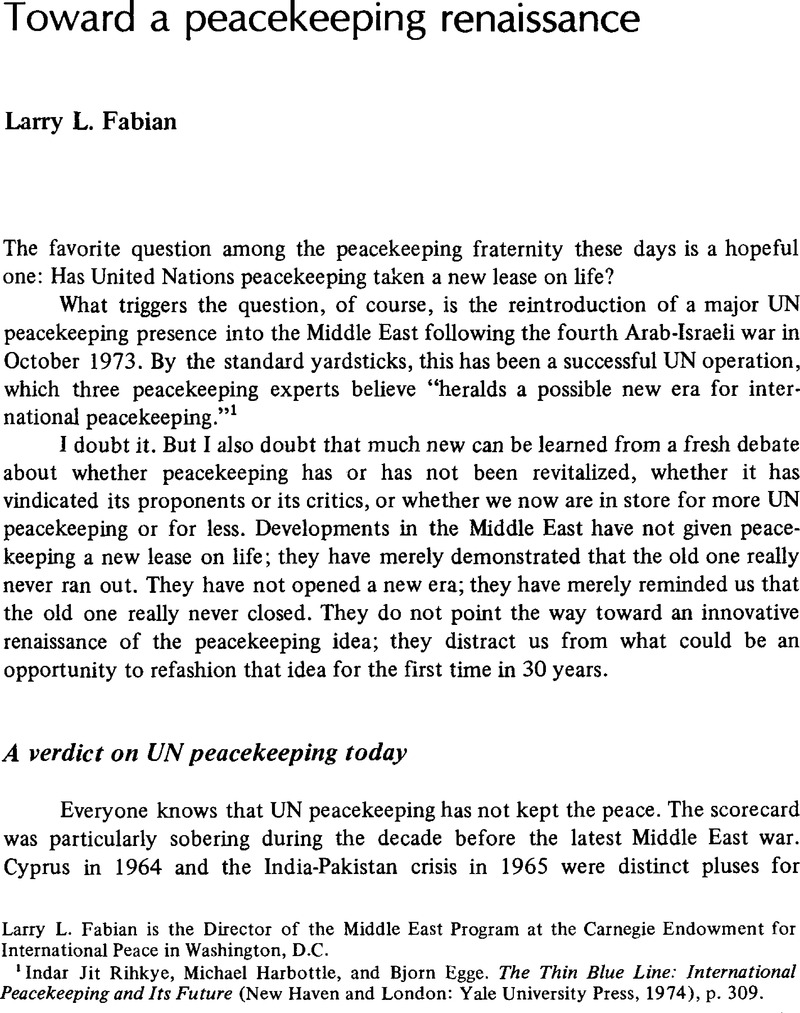Article contents
Toward a Peacekeeping Renaissance
Published online by Cambridge University Press: 22 May 2009
Abstract

- Type
- Comments and Current Views
- Information
- Copyright
- Copyright © The IO Foundation 1976
References
1 Rihkye, Indar Jit, Harbottle, Michael, and Egge., BjornThe Thin Blue Line: International Peacekeeping and Its Future (New Haven and London: Yale University Press, 1974), p. 309.Google Scholar
2 In the search for local consent, some new twists showed up in the political dynamics of Middle East peacekeeping as Israel, whose historical coolness toward UN peacekeepers is legion, became the prime advocate of a UN presence with broader authority, greater numbers, and longer duration, all to shore up a post-war status quo against Arab challenge.
3 A realistic appraisal of the new UN operations in the Middle East is Pelcovits, N. A., “UN Peacekeeping and the 1973 Arab-Israeli Conflict,” Orbis, Vol. 19, No. 1 (Spring 1975): 146–65.Google Scholar
4 “The Global Challenge and International Cooperation,” Address by the Honorable Henry A. Kissinger, Milwaukee, Wisconsin, July 14, 1975.
5 An authoritative review of negotiations in the UN Special Committee on Peacekeeping Operations has been written by the American who had been Washington's representative; see Finger, Seymour Maxwell, “Breaking the Deadlock on the U.N. Peacekeeping,” Orbis, Vol. 17, No. 2 (Summer 1973): 385–404Google Scholar. American private and official views on UN peacekeeping in the wake of the Middle East war can be seen in United Nations Peacekeeping in the Middle East, Hearings before the Committee on Foreign Affairs, 93 Cong., 1st Sess. (1973), passim.
6 Quoted in Berlin, Michael J., “UN Dilemma: If Israel Gets the Boot,” The Interdependent, Vol. 2, No. 5 (06 1975): 1.Google Scholar
7 Ruggie, Gerard. “Contingencies, Constraints, and Collective Security: Perspectives on UN Involvement in International Disputes.” International Organization, Vol. 28, No. 3 (Summer 1974), p. 496.CrossRefGoogle Scholar
8 Keohane, Robert O.. “International Organization and the Crisis of Interdependence,” International Organization, Vol. 29, No. 2 (Spring 1975), pp. 357–65.CrossRefGoogle Scholar
- 2
- Cited by


